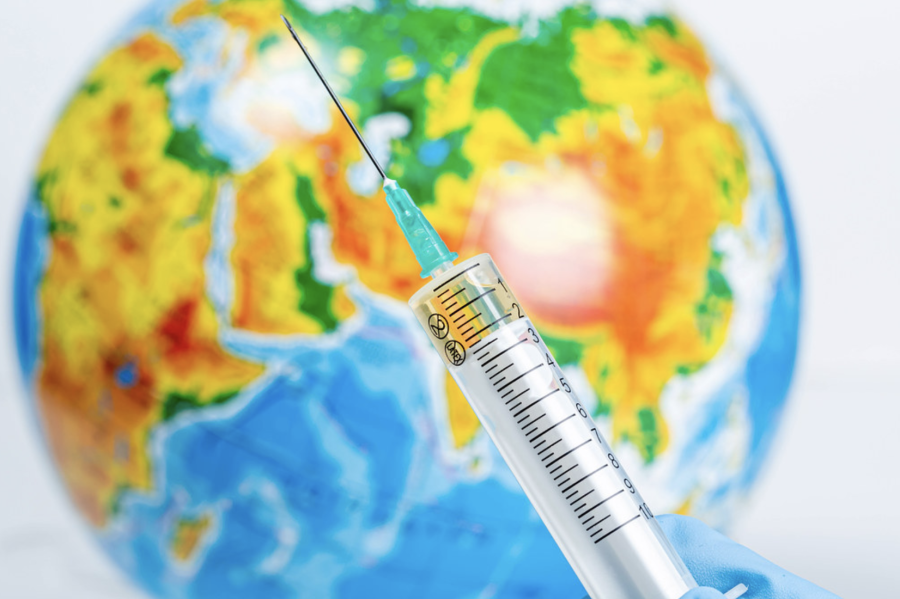The views expressed in this article are my own and do not reflect those of the University of Arizona College of Medicine, Tucson or the University of Arizona Graduate College.
The confirmation of Robert F. Kennedy Jr. as the Secretary of Health and Human Services represents a significant setback for public health, scientific progress and vaccine medicine in the United States. As someone aspiring to become a pediatric oncologist, I have seen firsthand how crucial vaccinations are in protecting vulnerable children, including those undergoing cancer treatment. Kennedy’s long history of vaccine misinformation, rejection of scientific consensus and promotion of conspiracy theories makes him uniquely unfit to lead the nation’s health policy. His confirmation is not just a political misstep — it is a direct threat to public safety.
Kennedy has spent decades spreading falsehoods about vaccines. His organization, formerly known as Children’s Health Defense, has been one of the leading sources of vaccine misinformation, actively discouraging parents from immunizing their children. At the same time, the U.S. has seen a resurgence of vaccine-preventable diseases like measles and pertussis, both of which had been largely eradicated thanks to robust vaccination programs. His confirmation as the head of HHS legitimizes these dangerous views, giving a known spreader of falsehoods control over federal public health policy.
Kennedy’s opposition to vaccines is not based on sound science but on debunked claims. He has repeatedly pushed the thoroughly discredited idea that vaccines cause autism, a notion that has been disproven by countless studies, including those published in The Lancet and other reputable scientific journals. This fear mongering has real-world consequences: in communities where his rhetoric has gained traction, vaccination rates have plummeted, leading to preventable outbreaks of deadly diseases.
The appointment of Kennedy to oversee the nation’s health policies is akin to appointing a climate change denier to lead the Environmental Protection Agency. The role of the HHS secretary is to guide the country in evidence-based health initiatives, not to dismantle them. The very agency he now leads — the Department of Health and Human Services — has been instrumental in promoting vaccines as one of the greatest public health achievements in history. His confirmation threatens to undermine decades of progress in immunization efforts, potentially reversing the immense gains made in eradicating deadly diseases.
Public health experts, including former White House COVID-19 response coordinator Dr. Ashish Jha, have expressed grave concerns about Kennedy’s leadership, warning that his policies could lead to more preventable deaths, especially among children and immunocompromised individuals. The World Health Organization has identified vaccine hesitancy as one of the top global health threats, and Kennedy’s new position will only amplify this dangerous trend.
His confirmation also raises concerns about how he will handle future public health crises. His track record suggests he will prioritize misinformation over science, which could have disastrous consequences in the event of another pandemic. His past statements opposing routine childhood vaccinations and COVID-19 vaccines make it clear that he lacks the ability to lead in a time of crisis.
Beyond immediate threats to public health, Kennedy’s leadership at HHS could stifle medical innovation. The development of life-saving vaccines relies on government-funded research and public trust in scientific institutions. If Kennedy uses his position to promote skepticism about vaccines, funding for vaccine research may be jeopardized, and pharmaceutical companies may hesitate to invest in new immunization technologies.
The United States has historically been a leader in vaccine development, contributing to groundbreaking advancements such as the polio vaccine, the MMR vaccine and, most recently, the mRNA COVID-19 vaccines. The fear is that under Kennedy’s tenure, federal agencies like the National Institutes of Health and the Centers for Disease Control and Prevention may be forced to shift their priorities away from vaccines, slowing progress and putting millions at risk.
The fight against vaccine misinformation is more urgent than ever. Kennedy’s appointment demands that we, as current and future medical professionals, scientists and citizens, push back against anti-science rhetoric and advocate for policies rooted in evidence. This is not a partisan issue — it is a matter of life and death. The medical and scientific communities must be vocal in their opposition to any policies that weaken vaccine programs and public trust in health institutions.
Parents must be encouraged to rely on reputable sources like the CDC and WHO when making healthcare decisions for their children. Medical professionals must continue educating the public about the critical role vaccines play in preventing disease. And policymakers must recognize the grave error in confirming a leader who poses a direct threat to the health of Americans.
Robert F. Kennedy Jr.’s confirmation as HHS Secretary is not just a political disappointment — it is a crisis for public health. His history of spreading vaccine misinformation, his disregard for scientific consensus and his potential to dismantle decades of progress in immunization efforts makes his appointment a dangerous mistake. The United States cannot afford to have its public health infrastructure compromised by conspiracy theories and anti-science leadership. The stakes are too high.
Skepticism about science is not inherently a bad thing — questioning, testing and verifying are fundamental to the scientific process. However, willful ignorance of overwhelming scientific evidence is dangerous. When that ignorance is amplified by someone in a position of power, it can lead to real-world harm. If we do not take action to counteract the damage his leadership will cause, we risk a future where preventable diseases make a deadly comeback. We must continue to advocate for truth, for science and for health, especially for our most vulnerable populations.
Follow the Daily Wildcat on Instagram and Twitter/X

Andres F. Diaz is an MD/PhD candidate in the Cancer Biology Program at the University of Arizona. His research focuses on understanding immunotherapies and cellular therapies for cancer, specifically targeting pediatric tumors. Diaz aims to integrate a bench-to-bedside approach in his work, aspiring to be a pediatric oncologist who serves in a global context. In his spare time, he enjoys beer brewing, backpacking and reading science fiction.









